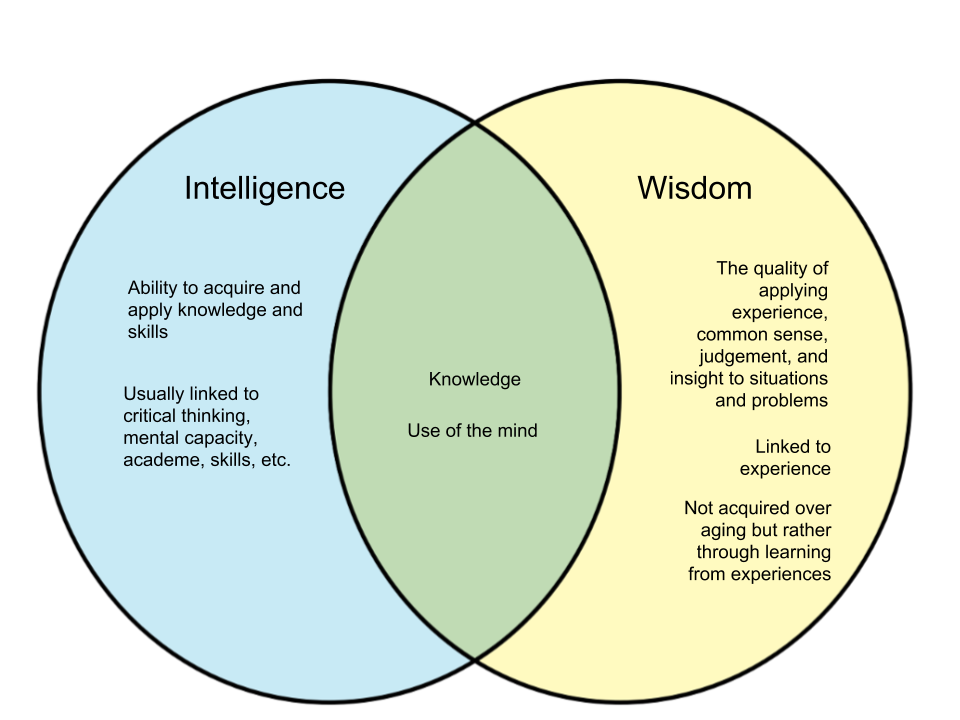Difference between Intelligence and Wisdom
There are many words that can be used to refer to the strength of the human mind. Among these words are intelligence and wisdom. Their usage, however, is quite different. Here’s why the terms intelligence and wisdom are unlike each other.
Intelligence is defined as the ability to acquire, retain, and apply information. The term is commonly associated with learning, especially in academic aspects. Intelligence varies as much as the difference on how individuals process information - there are those who are inclined to facts and figures, while there are those who are more focused on emotional intelligence.
Wisdom is classified as a virtue and is defined as the ability to think and move in accordance with knowledge and experience. Common sense, insight, and the ability to apply what one has learned over life are components of wisdom. Unlike intelligence, it is not one that is acquired with age but rather the capacity to judge and assess a situation and act on it.
| Intelligence | Wisdom | |
|---|---|---|
| Definition | The ability to acquire and apply knowledge and skills | The quality or virtue of applying experience, common sense and insight |
| Etymology | From the Latin word intelligere, meaning understand | From the Old English word wisdom or the Proto-Germanic word wisadomaz, meaning wise + dom or wise judgement |
| Commonly associated with | Academe, skills, knowledge | Experience, often attributed to age by many |

